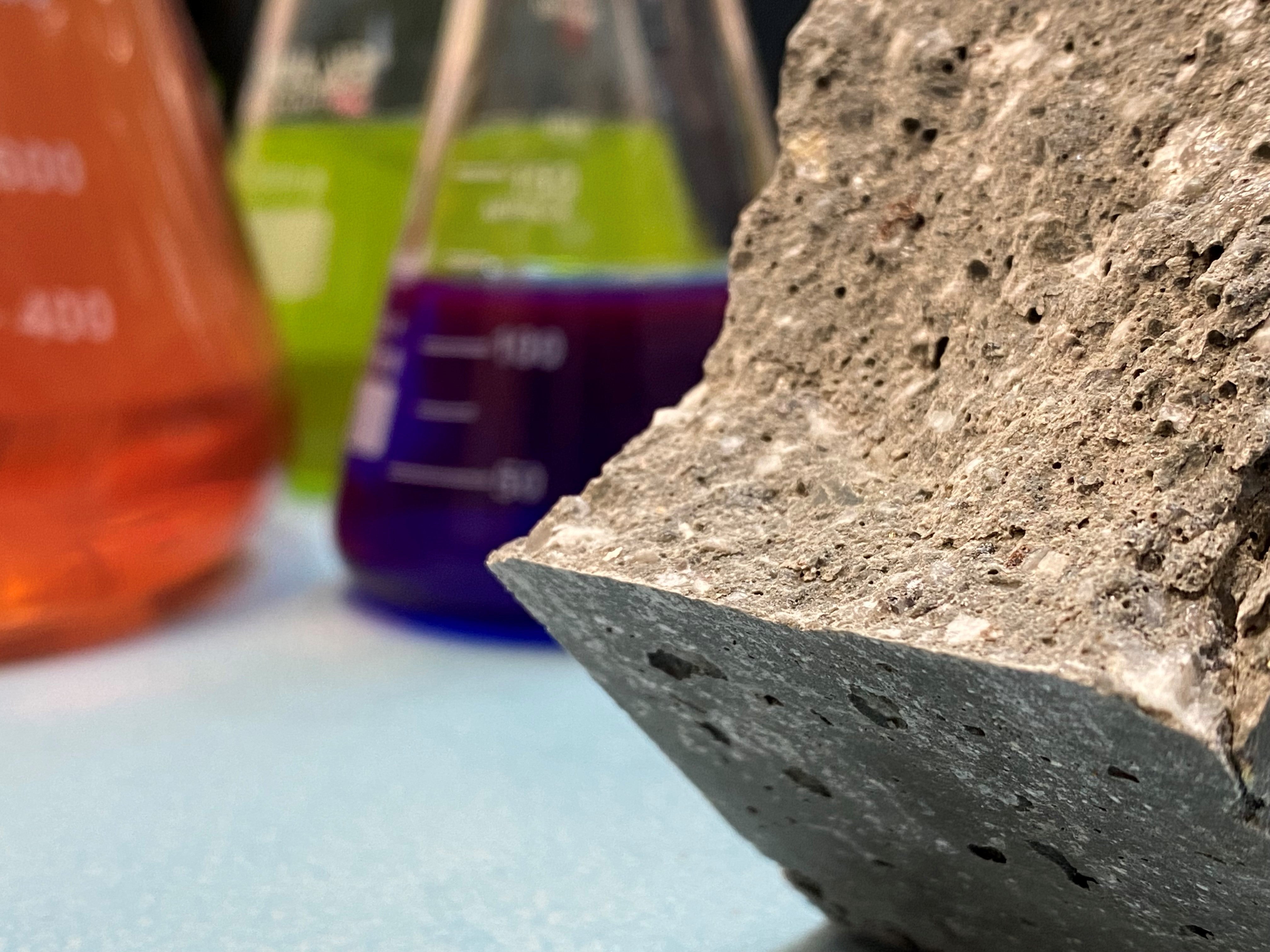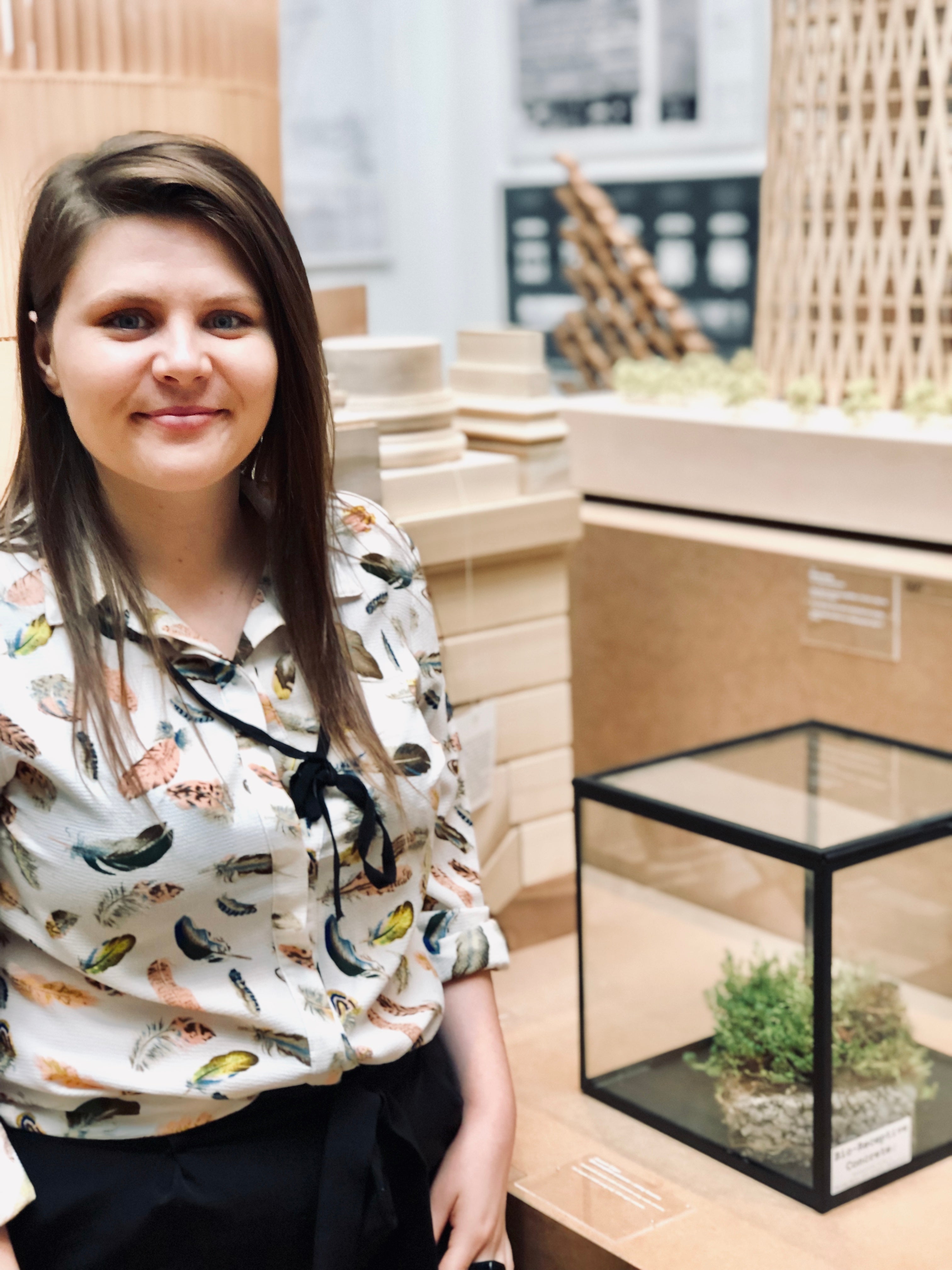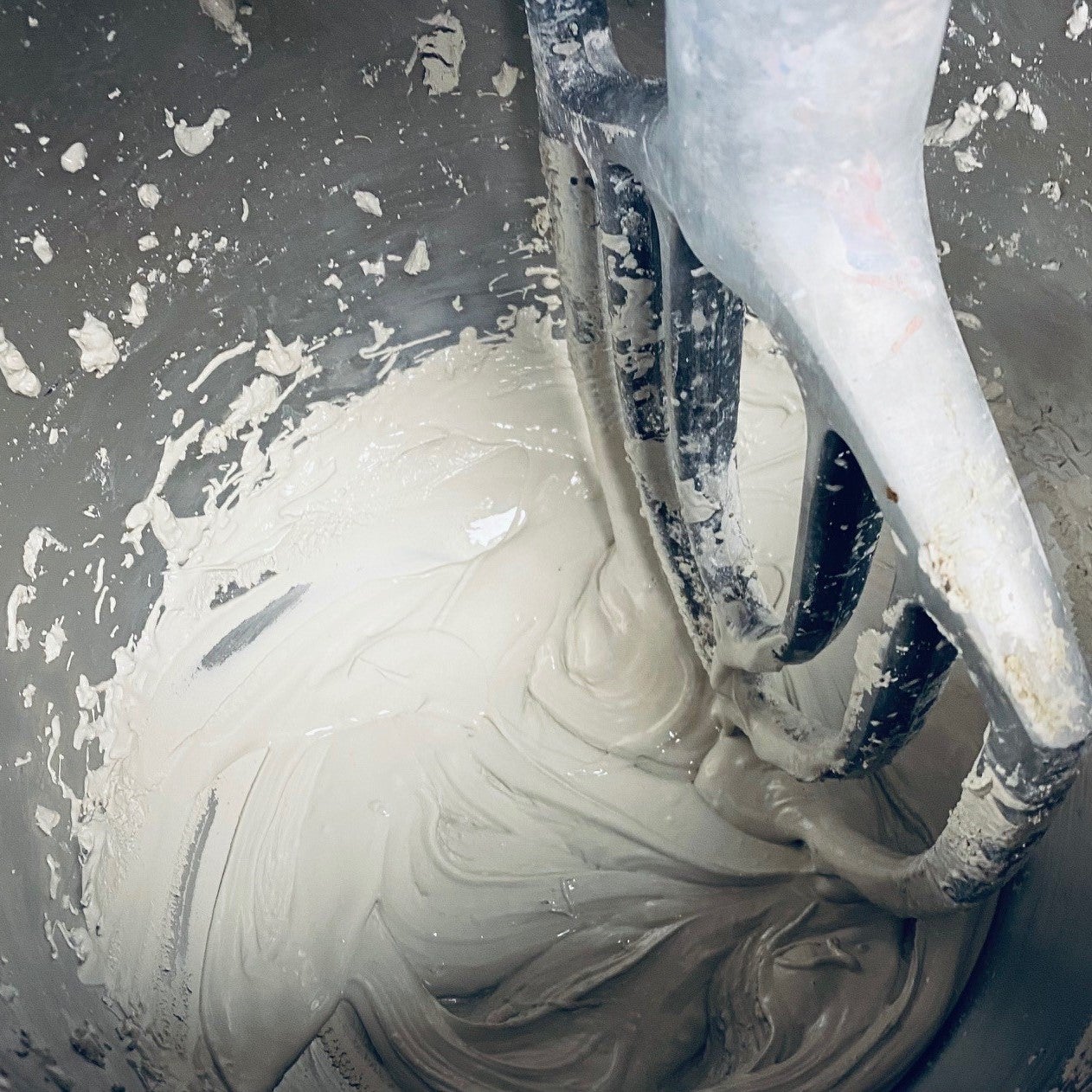The sustainable concrete start-up revolutionising how cities are built
Liz Gilligan traded in a life of academia for business and now Google wants to construct its new Silicon Valley campus using her product, she tells Olivia Fletcher


The phrase, “If not me, then who?” is the sentiment upon which Liz Gilligan says she founded her concrete business. We are always building: housing, office blocks, skyscrapers and entire cities – all of which require cement. Gilligan gets hers in batches of around 30,000 tons.
But there’s a problem: the concrete industry isn’t very green. Cement needs to be shifted across the country – and sometimes even across oceans. Plus, it usually relies on material that hasn’t been recycled.
That’s why Gilligan has a plan to revolutionise how we construct our cities and towns. It begins with Material Evolution, the eco-conscious start-up company she founded in 2017.
“The vision,” according to the chief executive, “is that no material is ever sent to landfill again”. And she is hoping to achieve that goal with smart concrete, which is created using an algorithm and made almost entirely from waste material.
“We can’t endlessly keep producing waste, and it’s immoral to send it anywhere else,” she says. “We should have to have a circular approach to our waste and if our waste material can be used in buildings and construction materials, or any material, then that should be how we push forward.”
So, how exactly is smart, sustainable concrete made? “We do this dip-testing process and then we feed the results back into the algorithm. That then understands the chemical composition, which we can then feed back into the manufacturing process and it will adjust the chemistry as needed to make our cement repeatable each time.”
The start-up currently makes its concrete from 95 per cent waste, and it reduces the carbon footprint of cement production by 85 per cent. Plus, Gilligan explains, “We’re also looking at how we increase the waste aspect so can we increase the amount of waste we add so that its 100 per cent and we’re just dry-grinding different waste sources together and getting them to chemically activate themselves.” And if that goal wasn’t big enough, the entrepreneur aims to churn nuclear waste into concrete, eventually.
But she wants the business world to know that, “we’re not all just hippies pushing for a green planet because we’d like to live on it, but that there’s an economic benefit,” to greener concrete.
This pioneering spirit may just be what landed her a spot on Forbes’s 30 under 30 list for manufacturing and industry in Europe. “The circular approach isn’t just good for the planet, but it makes economic sense to discuss with people that green makes money and to sell that as well,” she says.
You can do whatever you want; you can be whoever you want to be. Just keep going
When Gilligan set out on her mission, however, she tells me: “I didn’t even realise you could set up your own business until I was like, ‘Oh, there’s a huge problem. Someone needs to do something’ and I decided that it should be me.”
Selling was an alien prospect to her at first. She was raised in Devon where she tells me she still reaps the benefits of a morning sea swim before starting work. Along with countless businesswomen who paved the way for her, Gilligan says her mother, who fosters children with disabilities, is a vital source of inspiration. She says she taught her, “You can do whatever you want; you can be whoever you want to be. Just keep going.
“If you’d asked me to sell six months ago, I’d be like, ‘I’m a terrible salesperson, the worst, but you have to sell... you’re selling yourself; you’re selling the vision; you’re selling that waste is worth money.”
And in her experience, the industry is dominated by men who are mostly older than her, which makes the climate-friendly product a tough sell but the 29-year-old remains optimistic.
“We haven’t got time to change their mind on everything, but you just have to learn the language they talk and then sell to them that way.”

And nothing is a larger testament to Gilligan’s business acumen than Material Evolution’s partnership with Google. The start-up is working with the tech titan to produce concrete prototypes for its new 80-acre San Jose campus in Silicon Valley, which will probably comprise 7.3 million sq ft of office space, 50,000 sq ft of retail space and 4,000 homes.
Gilligan tells me she met Google executives when she was one of four finalists in a competition.
“They were looking to make their buildings more sustainable. I was like, ‘This is so weird. How does this happen?’”
Gilligan almost did not established Material Evolution along with her partner and brother. She says it was “scary at first” but, “being comfortable that you’re the only woman in the room,” is a challenge she has overcome. So, what’s her advice?
She says: “Just have the confidence of a white, academic male.”
Academia is something not unfamiliar to her. She completed her PhD at Queen’s University Belfast – where the idea for Material Evolution began brewing – and had been offered a postdoctoral job. “It was a really good postdoc. I really loved the professor and she was like ‘Yeah it’s really well paid, you’ll have a PhD student under your wing. You can do all of these things’… it was the dream academic job, you know?” But she was faced with a choice: accept the offer or turn her planet-saving idea into a reality.
“I turned her down. Burning the bridges, as everyone says, really makes you commit,” Gilligan tells me. “You’re like, ‘Oh, we have to make this work. There’s no other discussion... we’re making this work.’”

And so far, she has. Wherever waste goes, Material Evolution will follow like a nomad. At the moment, Gilligan’s team is setting up a manufacturing site in Middlesbrough with one of the UK’s largest manufacturing companies.
The start-up has been based in Belfast, is currently operating in Devon and has connections with Newcastle University. To ensure the cement travels as little as possible, the start-up simply sets up shop wherever the waste is. “We have had to create a waitlist for our material as we have ‘oversubscribed’ for our first 100,000 tons,” more than £10m in revenue, Gilligan says.
When I ask if enough is being done to reach net zero she says: “We still need to do better. There’s so much fluff in the world. I think we can get to net zero quicker. I think it involves big changes for a lot of people. We’re hoping to get to net zero way before 2050, obviously. We’ll try to do it in the next 10 years, or five years – however quickly we can get there depending on how we scale. We’re researching net-zero concrete… truly net zero.”
With such enormous drive to reach that target with her concrete start-up, she will cement herself in the history books.






Join our commenting forum
Join thought-provoking conversations, follow other Independent readers and see their replies
Comments